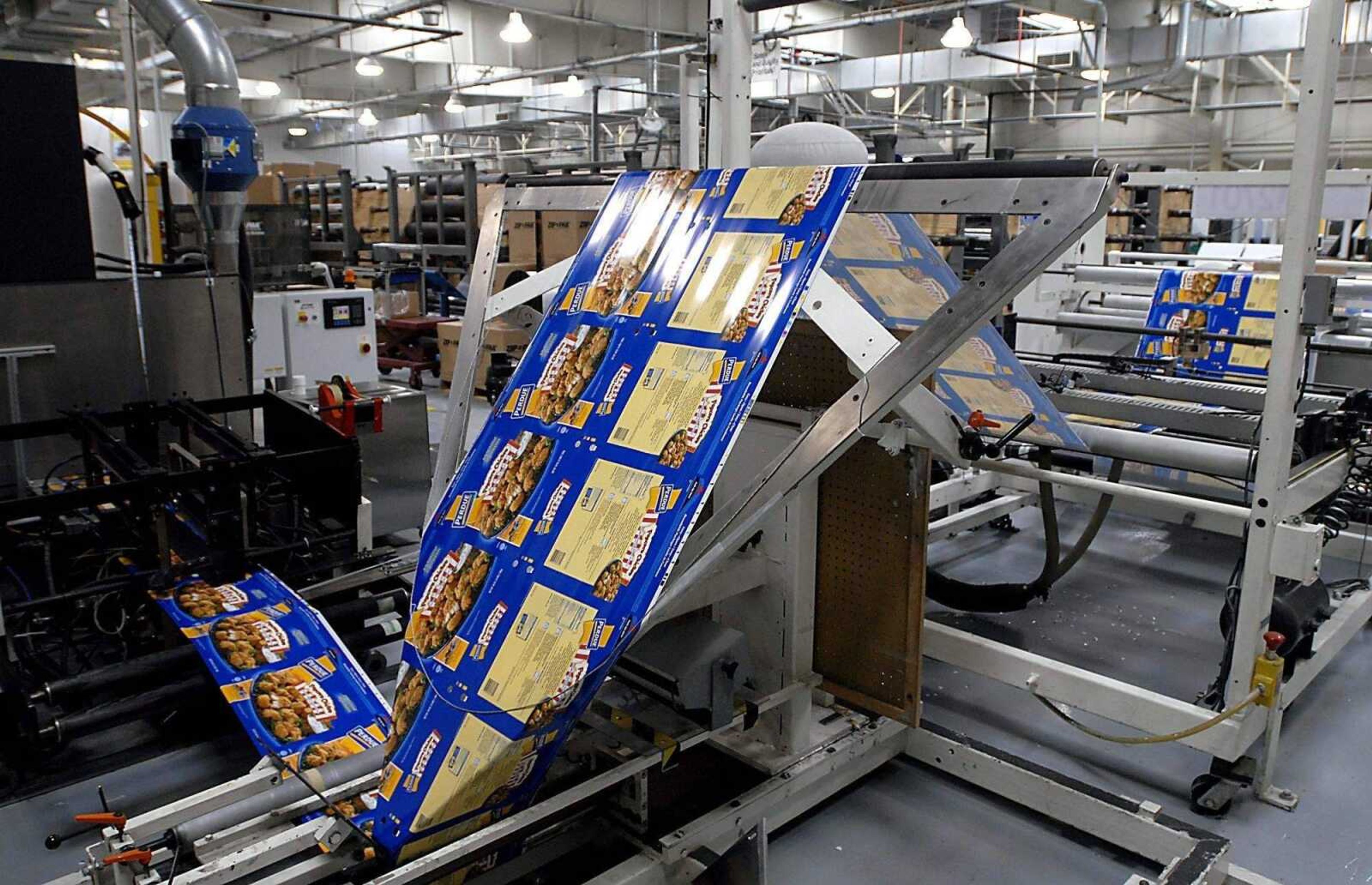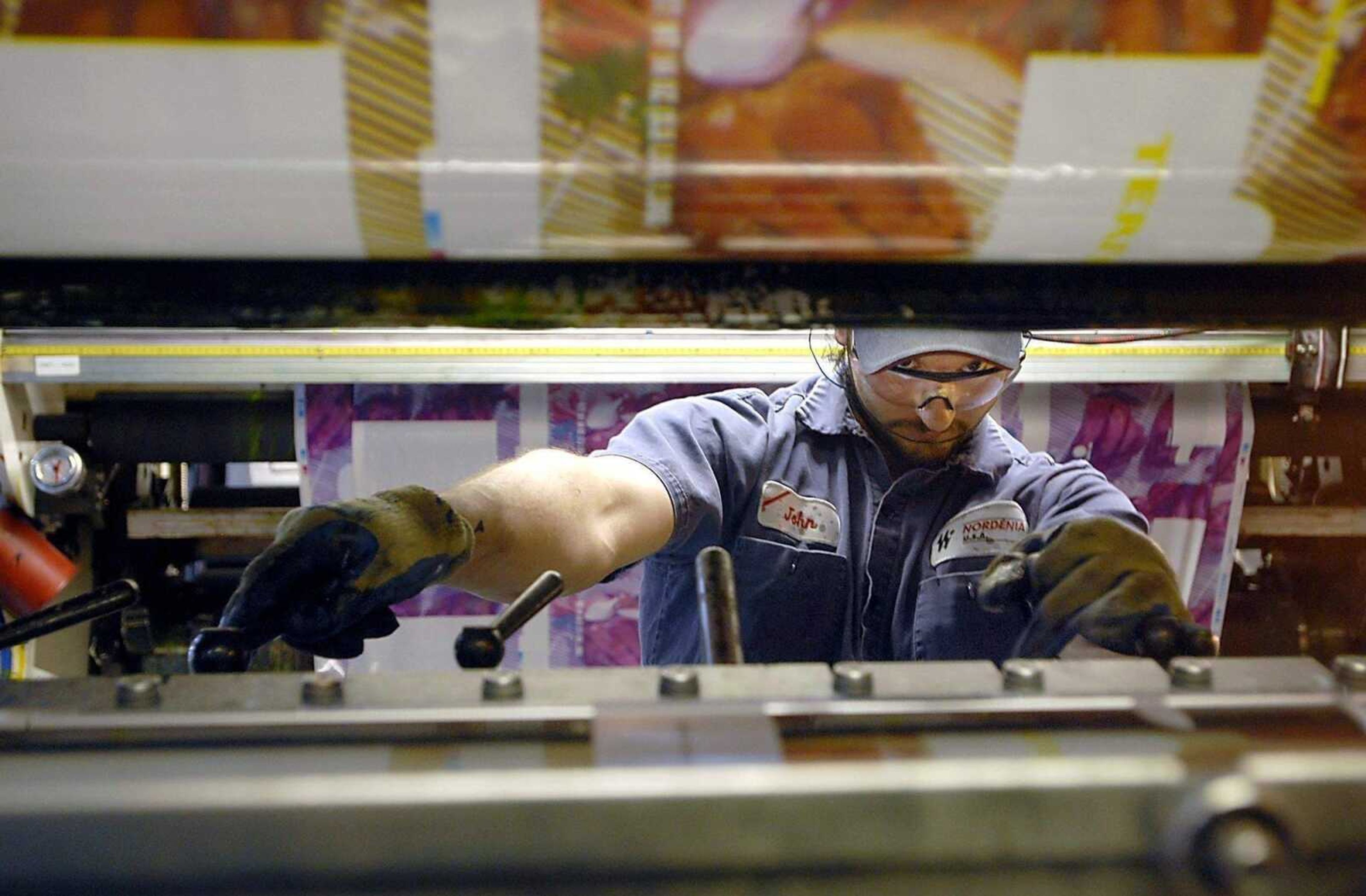Jackson company Nordenia USA boasts international flavor
When German native Martina Welker first moved to Southeast Missouri in 1990, she said adjusting to American culture was challenging. But thanks to the international atmosphere at her employer, packaging plant Nordenia USA in Jackson, she was able to adjust within a few years...
When German native Martina Welker first moved to Southeast Missouri in 1990, she said adjusting to American culture was challenging.
But thanks to the international atmosphere at her employer, packaging plant Nordenia USA in Jackson, she was able to adjust within a few years.
"Most of my co-workers from outside the U.S. are from Germany, and that's what I like about this company," said Welker, an administrative assistant with the plant for 19 years. "Though I'm not living there, I am able to talk with my co-workers from my country and other cultures, which has been a great experience."
Welker is one of 10 employees from overseas who not only give North America's only Nordenia USA plant a global feel but make it a microcosm of an industry that has its stake in the global market.
"We should be proud that we have an international company located right here in the middle of the country," said Kevin Dorris, spokesman for the more than 250,000-square-foot plant that sits on 30 acres.

Its parent company, Nordenia International, was founded by Peter Mager in Germany 43 years ago. Today the company that makes automotive, garden, pet care, metal and plastic products, among others, employs more than 3,000 people at subsidiaries in Africa, Asia, Europe and North America.
Nordenia USA began as M&W Packaging in 1989 with five employees as a manufacturer of flexible packaging for Procter & Gamble, which has a plant across the street on Highway 177. By 1990, the company had hired 60 employees when production began at its conversion department. The printing, extrusion, cylinder engraving and warehouse departments were added later.
In 2000 the company changed its name to Nordenia USA because of a companywide decision to have one name for all the subsidiaries so international customers could learn the Nordenia name. Before, all the plants owned by the company had operated under different names.
Nordenia USA's work force now stands at 396. The plant exports between 15 and 20 percent of its goods. The facility makes five products for Procter & Gamble. The plant's largest volume product, in pounds, is the wrapper for Always feminine hygiene products.
In addition to Procter & Gamble, other customers include Tyson Foods, Royal Canin, Avery Dennison and Nestle.
One of the plant's newest products is the FlexZiBox, a plastic bag that stands up like a box. The bags are mainly used for pet food lines, but Dorris said the company is hoping to bring the product to other markets, such as frozen food.
Typically it takes six to 12 months to develop a new product line, Dorris said.
"It depends on how extensive the research and development process takes," Dorris said. "If it is a current product with a new customer, the development time will be less."
The process of making the plastic packaging products begins by melting resin pellets and feeding the plastic through an extrusion machine to form a plastic bubble. The bubble then travels through several rollers and is collapsed into a sheet. It is then wound into a roll of plastic, which takes anywhere from 12 hours to several days.
The rolls are then fed through printing presses. Depending on the size of the order, this process could be one to 12 hours. After the rolls are printed they are laminated together with an adhesive and taken to the conversion department. The laminated plastic is folded in half and heat-sealed. Zippers, handles and other features are added afterward. The bags are then bundled and boxed.
bblackwell@semissourian.com
388-3628
Have a comment?
Log on to semissourian.com
Pertinent address:
14591 Highway 177, Jackson, MO
Connect with the Southeast Missourian Newsroom:
For corrections to this story or other insights for the editor, click here. To submit a letter to the editor, click here. To learn about the Southeast Missourian’s AI Policy, click here.










